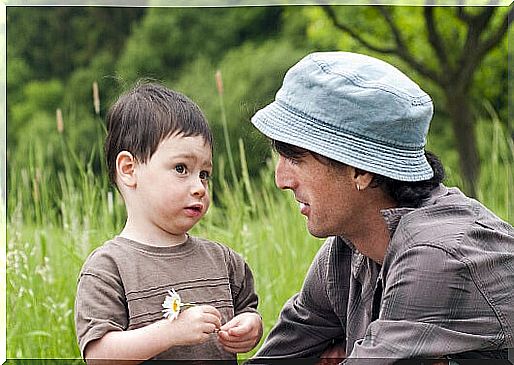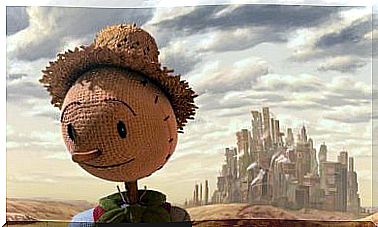Saying “no ” Positively

With new ideas about education and positive discipline, the “no” so often used by our parents and grandparents has come to be seen as something almost demonic. For many parents this makes them feel adrift, lacking formulas to set rules. Thus, they look for a way to impose their criteria, but without the feeling that they are authoritarian and excessively restrictive parents. Well, let’s learn to say “no” in a positive way.
The “no” that our children deserve, when we believe that we should oppose any of their wishes, it is better that it be a reasoned no, based on powerful reasons. On the other hand, there are intermediate degrees between no and yes. We can propose, for example, that they do what they want to do later, when the circumstances are more favorable. We can also offer them other alternatives that we do think are appropriate and that they may like.
The bottom line is to help our children to be the ones who little by little self-regulate and learn to function under certain rules. Although it is a long and constant process, we cannot forget that it is children and we are responsible for their education. Patience, because this can be a long and beautiful road.

Our children’s curiosity causes us anxiety
Children are curious by nature, the bad thing is that part of this restlessness seems to be lost when we become adults. Perhaps the “no’s” stopped this curiosity because it somehow bothered the adults, while the way of teaching in school, based on repetition and repetition, did not help either.
On the other hand, it is very difficult to find the balance between letting our child explore and indulge his curiosity and at the same time keeping our fear of something happening to him at bay. If we are very nervous and we allow ourselves to be dominated by our anxiety, it is likely that saying “no” is our resource and that we will yell at him “don’t do this…” “don’t get on there…”, “don’t touch that…”. So, of course, we do not say “no” in a positive way.
On the other hand, we can try to make an effort, but in that effort we also accumulate anxiety. An anxiety that many times we also get rid of screaming: we hit this no! that scares and disorients our children. They think: “why are you yelling at me if I have asked your permission before and you have given it to me?”
In this sense, it is best that we accompany our children in their “antics” and their exploration. Let us make a realistic balance of what is a real danger: nothing happens if you fall on the grass, it is different if you do it going down a ladder. Let’s follow them, but let’s give them some distance. Let’s gradually increase the freedom we allow them and step up our confidence in their judgment as they grow.
Say “no” less and explain why not more
On many occasions saying “no” is unnecessary. If we don’t want them to touch something, we can say: “That cuts”, “It’s dirty”, “That’s mine, your father’s or your brother’s”. We can also explain the function of things: “Chairs are for sitting”, or “Things, animals and plants must be treated with respect and cared for”, and explain the reasons for our actions: “I am talking or doing this, when I finish I will listen to you ”. In this way, our children will better understand what is happening, at least much better than with a categorical “no” and without explanation.
Routines and rules also help to say “no” less, for example: “It is time for the bath and then to bed, because there is school tomorrow”, “It is time to go home, because it is late and we have to prepare dinner ”,“ After eating you can have a dessert that you like, because your body will appreciate having fed before with foods that really make it strong ”.
And so we could put many examples that make children acquire a criterion. It also works to explain the consequences of what they do, for example, “If you hit your brother or your friends, they probably won’t want to play with you later” or “Studying will help you pass the exam” or “In a neat and clean room it will be easier to find what you are looking for ”.

Alternatives, a way to say “no” in a positive way
While the “no” is an outright denial, the alternatives are options that also help our children to make their own decisions in the future. Sometimes they will confront us with a kind of fight and although we are adults and always have the last word, forcing our children to submit by system, without leaving them at least a little space to defend their ideas and make us change our minds is an attitude that will not help their growth. That sometimes it will be tiring to reason with them, that they can exhaust our patience with their energy, for sure, but with a different attitude, even if it costs us more, we will also help them more.
It helps to give alternatives such as: “The knife is very sharp, but you can help me to dress the salad” or “It is raining, it is cold to go out, but we can play, cook something or do a puzzle inside”, “You can play 5 more minutes and then when we get home I’ll tell you a story ”. For example, offering an option can help them go to bed more easily: “It’s time to sleep, but you can take whatever you want to bed, a stuffed animal, doll, story, etc.”
And when we have to say “no”
Let’s catch up with them, speak with a firm tone, but without shouting, and use their name to address them. There is no reason for us to be rude or rude, insult or say things that we can regret. Let’s change our speech. For example, “I am angry because you have broken this or have done this, I did NOT like what you have done.”
Let’s talk about actions and let’s not tell the child that what he has done in a given moment defines him. For example: “You have done something stupid” and not “you are stupid”, or “Sometimes you take a long time to do things” and not “You are lazy”. Let’s lead by example and be consistent. For example, if we have promised something, such as playing for a while after brushing our teeth: “You didn’t want to brush your teeth, therefore there is no story” or “We won’t do the puzzle because we haven’t gotten back from the park on time.”
Finding alternative ways to put limits on our children, without falling into saying “no” constantly or without banishing it altogether, makes us intelligent educators, because we are intelligent when we say “no” in a positive way. It means renewing educational models with criteria, reasons and meaning.
This new approach will probably require an effort and at first it may be more tiring, but when we have caught the dynamics the effort will become even less because we will have prepared our children to understand our points of view for themselves and we will have contributed to their internalize an adequate criterion to decide which desires to satisfy and how and which not.









